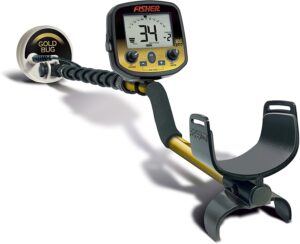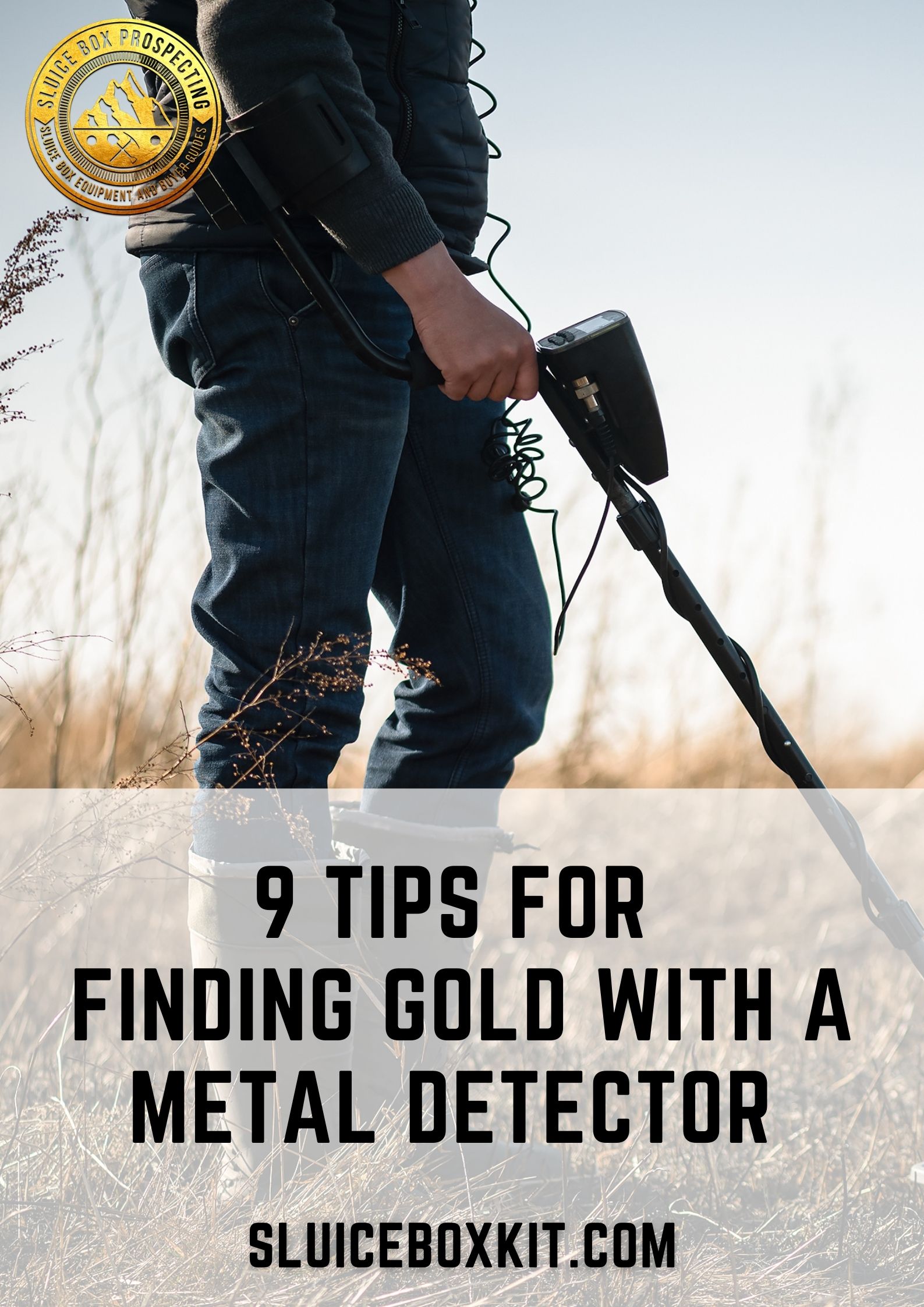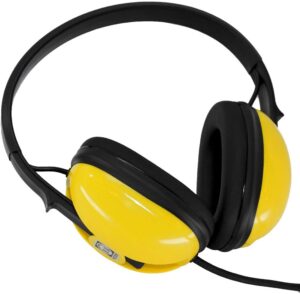Gold detecting with a metal detector can be profitable and fun but frustrating at the same time. Finding treasure is impressive, but digging up trash or finding nothing is discouraging. With a little fine-tuning, you can recover more gold treasure than trash.
These tips for gold detecting will help increase your chances of finding treasure more efficiently.
Guide For Finding Gold With A Metal Detector

9 Gold Detecting Tips For Hunting Success With A Metal Detector
Gold prospecting with a metal detector requires more time and patience than hunting for coins. You won’t be able to cover as much ground as fast, and you’ll likely need to dig pretty deep to find your target.
These effective tips will increase your chances of finding gold with a metal detector:
1. While Gold Prospecting With A Metal Detector, Be Patient And Slow Down To find More Targets
When gold prospecting with a metal detector, you may need to go very slowly across an area for your metal detector to pick up any targets that may be buried beneath the surface.
Prospecting for coins is not that difficult because they are often just below the topsoil. Prospecting for gold, by contrast, requires a plodding, almost crawling pace.
Gold is usually deeper below the soil, and most often, the flakes are so small they elicit a weak signal from the metal detector.
Going slowly over the area increases your chance of picking up those signals that may not be strong enough to stop you in your tracks.
Click Here To Shop The Top 3 Best Metal Detectors For Gold Prospecting!
2. Keep The Metal Detector Coil Close To The Ground To Locate More Gold
The coil of your metal detector is what picks up the signals from the targets. The higher the coil is held from the ground’s surface, the weaker the signals will be.
It can be tempting to lift the coil a bit when rocks and mineralization are causing quite a disturbance. But if you do this, you may miss the signal from the target you are prospecting.
In areas where there is a lot of loose rock or debris, you may want to rake it aside so you can search closer to the ground. Of course, this will not always be possible with embedded rock and other objects.
But as much as you can, try to keep the coil almost touching the ground’s surface. This practice gives you a better chance of picking up signals that may not be strong enough to cut through a greater distance to the coil.
3. Overlap Your Sweeps With The Metal Detector, So You Don’t Miss Any Gold
The band that is scanned underneath your coil is like an inverted triangle. The deeper your coil penetrates below the surface, the narrower that band becomes.
At the greatest depth, you are scanning less than half the surface area of your coil. So, if you are making parallel sweeps, you’re leaving about half of the area unscanned. This poor technique means you could potentially miss more in an area than you find.
The best way to increase your chances of a thorough search is to ensure your sweeps overlap each other. If the first sweep does not detect gold, the overlapping sweep will. Using this technique will increase your chances of finding gold with a metal detector.

4. Use Short Sweeps With The Metal Detector To Keep Your Coil Close to The Ground
Another way to maximize your find potential while gold detecting is to shorten your sweeps.
When making broad sweeps with your metal detector, it is almost inevitable that the coil will be farther away from the ground at the extreme ends of the sweep. This mishap can cause you to miss signals because the coil is too far away to pick them up adequately.
Keep your sweep short and tightly controlled to give yourself the best chance of picking up all signals.
The best form for this type of sweep is to keep the arm close to the body and use the wrist and forearm to sweep the coil from side to side in short, tight arcs.
This method provides consistency for your sweep pattern so that your metal detector’s coil stays close to the ground for the entire sweep. Using this technique will give you the best chance of hearing all the clues your metal detector is locating.
5. Use Metal Detector Headphones In Noisy Areas
Headphones can help you minimize background noise to hear your detector’s signals. Using quality metal detecting headphones is invaluable for reducing environmental noises. Especially when prospecting around running water or high traffic areas.
MineLab Equinox Waterproof Headphones
When metal detecting for gold in creeks, these headphones allow you to hear what’s happening when you submerge the detector’s coil underwater.
Gold is often found in streams because erosion deposits it there. It is impossible to hear your metal detector’s signals underwater without headphones like these.
Using headphones will help you make the most of your creek searches and ensure that you don’t miss out on gold because you can’t hear the signals.
Metal detecting headphones may also bring in weak signals more clearly so you can discriminate gold from junk. Deciphering between the two will help you save time and energy for digging real “finds” instead of worthless ore.
6. Ground-Balance Your Metal Detector Before Prospecting For Gold
Before you begin prospecting with a metal detector, you need to ground-balance your metal detector. Doing so will determine how responsive your detector is to mineralization in the ground or rocks.
Cheap metal detectors have no method of adjusting ground-balance settings. The balance is factory set and cannot be changed. It is rarely accurate, so you will miss many targets using the cheapest models available.
Pulse Induction metal detectors also do not have any way to ground balance because PI metal detectors do not respond to ground mineralization.
7. Adjust The Balance Of Your Metal Detector While Gold Prospecting If You Change Locations
Mineralization changes from one locale to another, so periodically, your metal detector may need to be re-balanced to reflect the level of mineralization in the area you are prospecting. Re-balancing is especially important if you use a VLF (Very Low Frequency) metal detector.
VLF metal detectors are most affected by minerals or conductive salts in the ground. If not correctly ground-balanced, your metal detector will not identify targets because of the overwhelming mineralization.
While it may be tempting to ground-balance your metal detector to ignore most of the mineralization, you risk losing target signals. Often gold flakes are so small that their signal is barely different from hot ground or rocks.
It can be frustrating to listen to all the signals from ground mineralization but to find the smallest pieces of gold, you need the highest response from your metal detector.
You’ll learn to differentiate between hot ground noise and target signals with practice.
8. Be Careful Of Using The Automatic Ground Balancing Feature When Prospecting For Gold
The most expensive metal detector models are equipped with Ground Tracking. This feature automatically adjusts your metal detector’s balance to mineralization while searching the area for targets.
This capability is very beneficial to general hunters who look for metal objects just below the surface. Your settings are matched to the charge of the ground in real-time. As a result, you get the highest accuracy from your metal detector.
However, the automatic ground balance feature harms the gold prospector more than good. The automatic ground-balance feature significantly shortens the detector’s depth range in heavily mineralized areas. This feature means that your coil does not penetrate as deeply into the ground in these areas resulting in missed targets because gold is rarely close to the surface.
9. Finding Gold With A Metal Detector Will Require Practice and Perseverance
The most crucial tip for prospecting with a metal detector is don’t give up. Success rarely comes quickly, but your prospecting skills will develop with practice and patience, and you will improve at gold detecting.
Research the best areas to find what you want to prospect for, and keep searching. Hard work is always rewarding.
Can You Find Gold With A Metal Detector?
Gold absolutely can be discovered with a metal detector. Several small operations use metal detectors exclusively to find and extract gold.
An entire section of metal detectors on the market today is made especially for gold prospecting.
You can experience success while prospecting for gold with a metal detector; however, not all metal detectors are created equal, so you need to research the best metal detector for gold prospecting carefully.
If you are looking for the best gold detector options, check out the post: The Top 3 Best Gold Detectors For More Prospecting Success.
For More tricks and advice, visit the post: 10 Metal Detecting Tips, Pro-Tricks & Help For Best Success.


